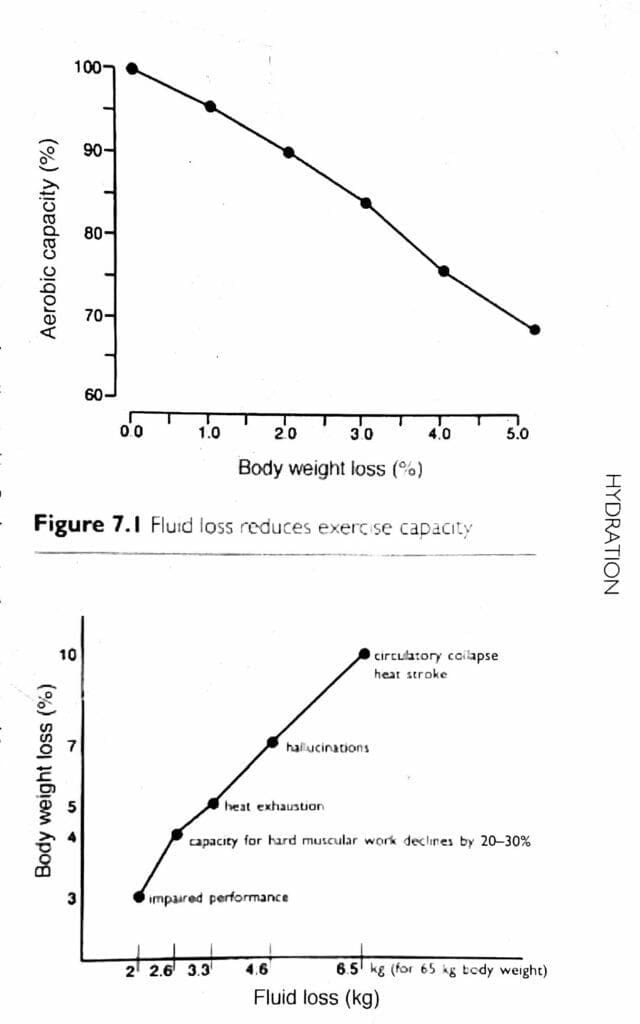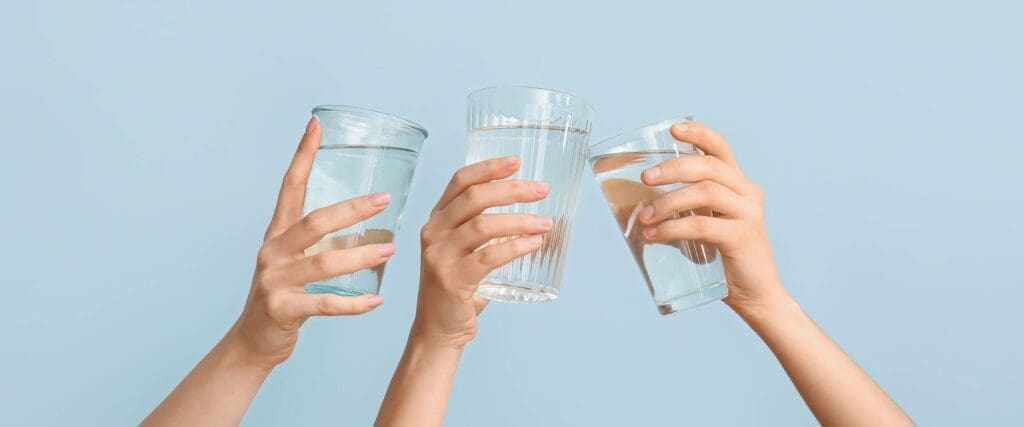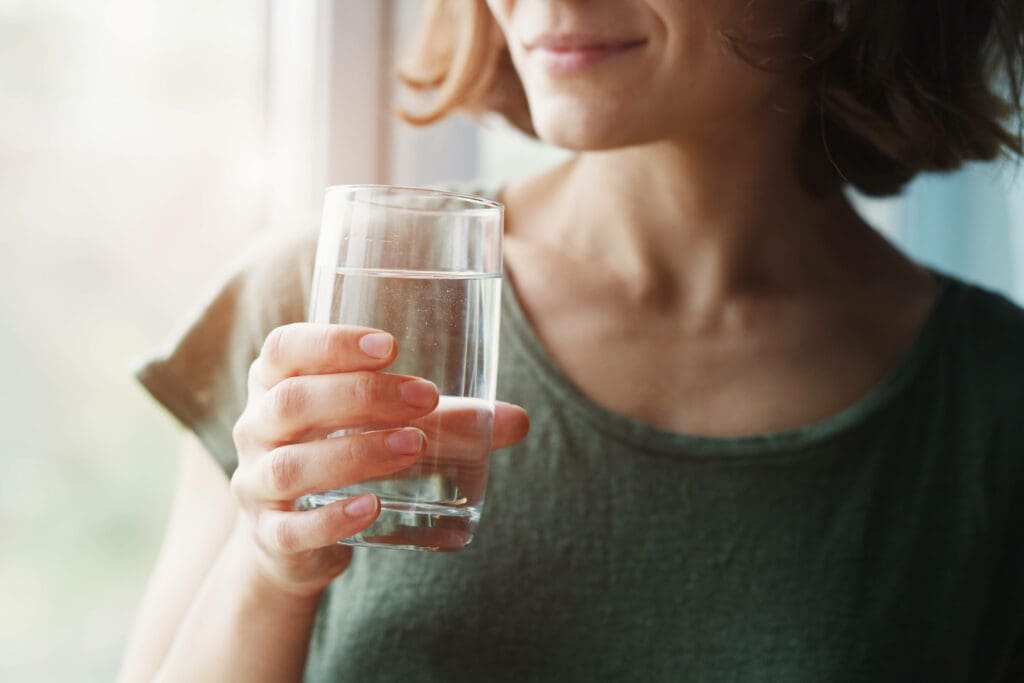
Why is hydration important, and why should we stay well-hydrated?
Hydration is very important for the human body. Drinking water helps us stay focused and healthy by supporting the proper functioning of our kidneys and liver.
Doctors in Europe recommend drinking at least 2 litres of water per day. In some countries, the recommendation is even higher-up to 3 litres daily. If we engage in sport or physical activity, we need to adjust our hydration accordingly.
We often don’t realise it, but what we eat can significantly affect our hydration levels.
For example, having grilled toast in the morning can affect hydration more than eating cereals like porridge. It may also depend on what we ate the day before; Or even a few days earlier; Especially if those meals were high in salt. To maintain proper hydration, we need to drink water consistently over several days. It also takes a few days to feel “Recharged” or “Fully Hydrated.” Hydration and rest are both essential for proper muscle recovery.
Find more information on diet and hydration here. (Link)
Another useful fact: when we wake up in the morning, it’s the time of day when we are most dehydrated. Drinking water in the morning is very important. You can read more about this in our food and diet schedule section. (Link)
When it comes to breakfast, eating bread can be beneficial. However, we should remember that bread is high in fibre, which is a form of carbohydrate. While carbohydrates and fibre support muscle function, they can also increase bowel transit time, which may reduce vitamin absorption and contribute to dehydration.
Carbohydrates and fibre should be included in almost every meal to support the body’s natural functions. (Link) (Link)
By focusing on hydration, we begin to understand not only our fluid needs but also how diet influences our overall health and digestion. We also become more aware of the importance of intestinal transit. More information to follow. (Link)
Another important point: Eating too much salty food; Especially when combined with excessive potassium intake; Can be harmful and may lead to symptoms such as headaches and vomiting. (Link)
Anita Bean provides a helpful chart that shows the impact of hydration and physical activity on our health:

( Anita Bean – “The Complete Guide to Sports Nutrition” – https://anitabean.co.uk/my-books/ )
You may notice that the more dehydrated we become, the more our physical energy decreases. Hallucinations, anxiety, and stress levels can also increase significantly, depending on our activity level and hydration status.
We may not realise it, but even something as simple as walking can lead to water loss. If the mind suddenly feels foggy or starts over-thinking in loops, it often means that something is missing; Something in our diet may not have been right over the past few days.
It’s also important to recognise that dehydration can develop gradually over several days.
A healthy lifestyle; Including proper eating, hydration, and sleep; Helps the body recover and supports focus and overall well-being.
Christophe André mentions in his book, “Our brain likes to do what is good for ourselves.” I interpret this to mean that if we begin to take care of ourselves, our body will respond positively, and healthy habits will become easier to maintain over time.
However, we must remain constantly aware of what we do. It’s a bit like managing a matrix, with many factors acting together at the same time. Well-being depends on a wide range of elements that must be considered collectively to achieve balance and health.
One useful tool to help monitor our well-being is the “Smartwatch” or “Fitness tracker”. These devices can send alerts when, for example, we begin to dehydrate. As our hydration level drops, our heart rate may increase, and our body temperature can rise more quickly; Potentially leading to overheating. “Smartwatches” can alert us when our heart rate is too high, prompting us to take a break and rehydrate.
Some devices also send hydration reminders after physical activity, even after a simple walk. As shown in the “Anita Schema” mentioned earlier, body overheating depends on both physical activity and hydration. If a device alerts us that our heart rate is too high, we can pause, hydrate, and reduce our body temperature accordingly.
“Smartwatches” can also allow us to manually track the amount of fluids we drink by setting reminders after exercise or at specific times during the day.

When it is the best moment to Drink ? and How ?
To maintain good hydration levels, there are a few tips and tricks worth learning.
We often think that drinking water during meals or at restaurants is perfectly fine; However, it’s not ideal for the digestive process. (It’s helpful to be aware of this, even if you don’t avoid it every day.)
The reason is that drinking during meals can dilute the stomach’s natural digestive agents, such as saliva and gastric secretions. These fluids are essential for pre-digesting food and preparing it for proper absorption in the gut.
It’s generally recommended to only sip small amounts of water during meals, for example, if you’re having difficulty swallowing or need to take medication.
Ideally, we should avoid drinking large amounts of fluid during meals and wait until digestion has completed; Typically at least 1 to 1.5 hours after eating; Before drinking more.
Something else worth knowing is that, according to some studies, the best time of day to drink coffee is during the mid-morning break (between 10 and 11 a.m.). The body may respond better to caffeine at this time, possibly due to its natural circadian rhythm and the post-digestive state following breakfast.
David Servan-Schreiber recommends drinking plenty of tea in his books. While some people may be sensitive to caffeine, even without drinking tea, it’s essential to stay hydrated by drinking at least 2 litres of water per day.
According to several studies, tea and coffee can support hydration and may make it easier to meet your daily fluid intake.
Another useful point: by the time you feel thirsty, you may have already been dehydrated for several hours. This is why you shouldn’t wait until you feel thirsty to start drinking water.
Physical activity can also help us relax and improve our sleep quality; But if we do a lot of sport, stress and anxiety levels can also rise. That’s why it’s important to stay hydrated and eat properly in relation to your activity level. Don’t wait too long after starting your activity to rehydrate.
In my experience, keeping a good hydration level consistently is a key part of a healthy lifestyle. Developing better hydration habits takes time; It’s a bit like running an “Hydration marathon”. But you’ll start to notice real benefits for your mood and physical energy after just a few days.
Also remember: Coffee, Tea, Chicory, and other Herbal infusions are known to contain natural detoxifying agents that can support overall health. Drinking tea, in particular, is increasingly recognised for its protective effects against cancer and other illnesses.
For more information, please see the sections on:
“Tea, Coffee, Chicory, and Herbal Infusions” and “Anti-Cancer Advice.

Comments are closed